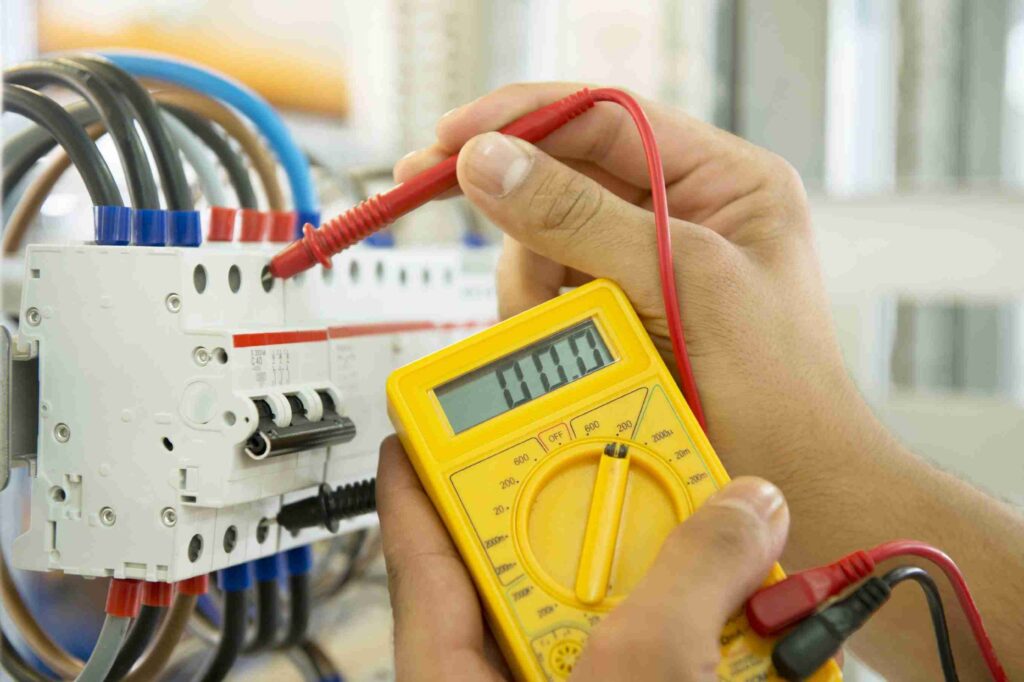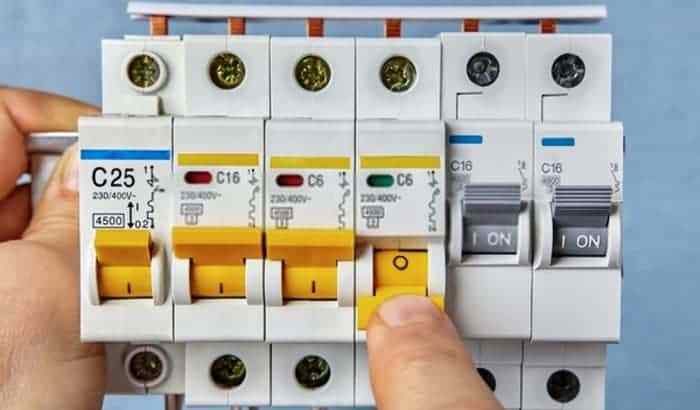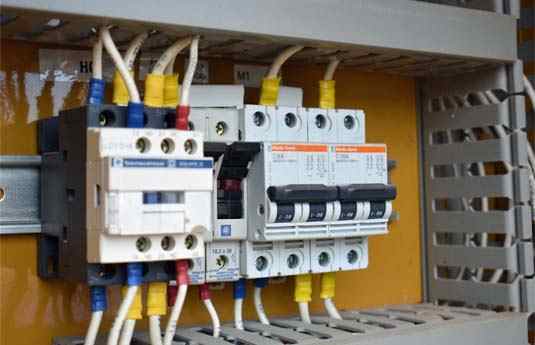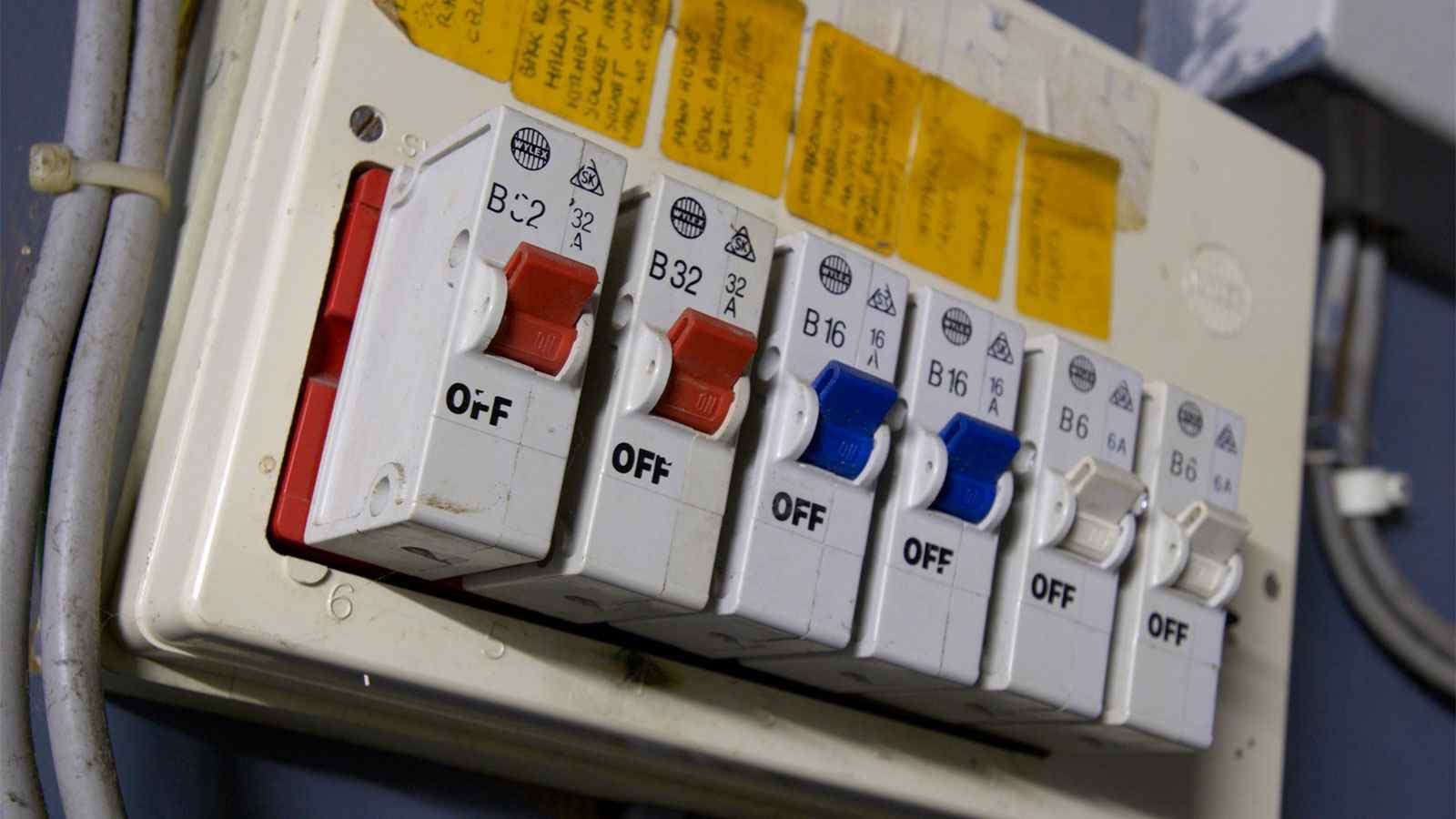Emergency Electricians Plumbers
What is a Circuit Breaker, and Why Does it Keep Tripping?
Table of Contents
When a circuit breaker usually trips, it has to be reset from the fuse box, wherever it is situated, either in the garage or under the stairs.
Whenever the switches trip, circuit breakers cut the power so one can safely reset the power from the fuse box.
Even though it is a safety device, constant tripping and restoring the power can be stressful and overwhelming. If you know the exact reason why they are continuously tripping, you may be able to do something about it.
What is a Circuit Breaker?
Each property, be it commercial or residential; all electrical systems have electrical circuits protected by a panel known as a consumer unit that can cut the power off. Modern consumer units can provide protection and control, but some older units may be blown if overloaded. For instance, in case of overheating, the circuit breakers cut off power because if they overheat, it can result in an electrical fire. But if it keeps breaking or switching off, there could be multiple issues.
The following are the issues of why the circuit breaker keeps tripping:
Circuit Overload
This is one of the main reasons circuit breakers keep tripping. This happens when you put too much electrical demand on a single circuit, such as too many fixtures and appliances. Individual circuits overload when too much energy passes through a single loop, resulting in immense heat. The breaker trips to prevent any damage, such as an explosion, fires or sparks.
If this is continuously happening, one primary reason could be that you reside in an old home, and older homes tend to have different wiring than modern ones.
To resolve the issue, you can distribute the appliances or hire a professional electrician to upgrade your consumer unit.
Suppose you are not sure whether or not circuits overload. You can test the theory by turning off and unplugging all the appliances, light fixtures, lamps and conditioning units attached to the consumer unit.
After waiting for a few minutes, turn on all the electrical appliances one by one, and if the circuit breaks by turning on a device, it means you are facing a circuit overload. Hiring an electrician would be a great idea to restructure the electrical situation.
On the other hand, there is no doubt that the whole process would be stressful and could take hours because you would have to turn on numerous devices. You can also rewire your home if you want to go the extra mile. Hire a skilled professional to do such a job as they can handle all the devices at once.
Moreover, if you do not know the basics of the electrical system, it is highly recommended that you never deal with electrical wires yourself. Doing so may put you in danger, leading to electrical fires and short-circuiting.


Short Circuits
Short circuits are another reason for circuit breaker tripping; they pose a more significant threat and damage. The reason for this issue could be faulty electrical or a faulty wire coming in contact with a neutral one. Additionally, loose or faulty wirings of a plug could also be a reason for short circuits.
In such a situation, too much electrical current passes through, overriding average electrical resistance, and the circuit will trip due to the high and intense heat preventing fire and explosion.
To indicate such as issue, you may notice a burning smell or brown discolouration around the outlets, which means a short circuit.
However, the exact issue can be challenging to diagnose and fix as there are many wires in appliances, and anyone could be loose in a switch.
To determine whether or not you are dealing with this issue, you can run the same test. If plugging in an appliance causes the circuit breaker, the outlet is probably short. In the meantime, don’t plug in any device; you could receive an electric shock.
Additionally, dilapidated wiring of an appliance can also trip the breakers. Therefore, if an appliance frequently trips the breakers, it must be rewired.
Ground Fault Surges
Ground fault surges are similar to short circuits; however, it involves a live wire touching either a metal box or bare ground wire. This will also cause an excessive flow of electricity, and the breaker will trip, discolouring the switches.
When electricity deviates from its intended course and chooses to travel into the ground instead, this might occasionally appear in your home as a ground fault. There could be many reasons which cause this problem, such as a loose wire or a pipe leaking into an outlet.
But nowadays, ground faults are a thing of the past because of modern wiring.
You should call a professional if you detect any ground fault issue that keeps tripping your breaker. As mentioned before, this issue can also result from poor wiring; thus, anyone fixing a ground fault must come into contact with harmful live wires.
Electrical injuries can result in serious issues that should be avoided. You should hire a specialist to identify and eventually resolve your ground fault problems.


Miswiring
If your electrical system has internal wiring, this could be another reason for tripping of your breaker when it should not. Faulty or poorly installed wiring can also cause electricity to flow through the circuits, even if switched off.
Here are some signs that indicate you have a miswiring in your home.
Multiple extensions should never be used permanently; they should only be used in an emergency and for a shorter period. To install extra outlets, call your local electrician.
Your lights and bulb may start to flicker when you turn on an appliance such as a space heater. This shows that there is an issue with the breaker instead of the appliance.
A strange smell, such as sulphur, rotten eggs or burning plastic, might be smelling a fire or explosion hazard. Immediately turn off the main power from the consumer unit and call a professional electrician.
This issue should never be left unattended. If you notice any buzzing sounds, sparking outlets or shocks when you plug in an appliance or turn on a switch, call a professional.

